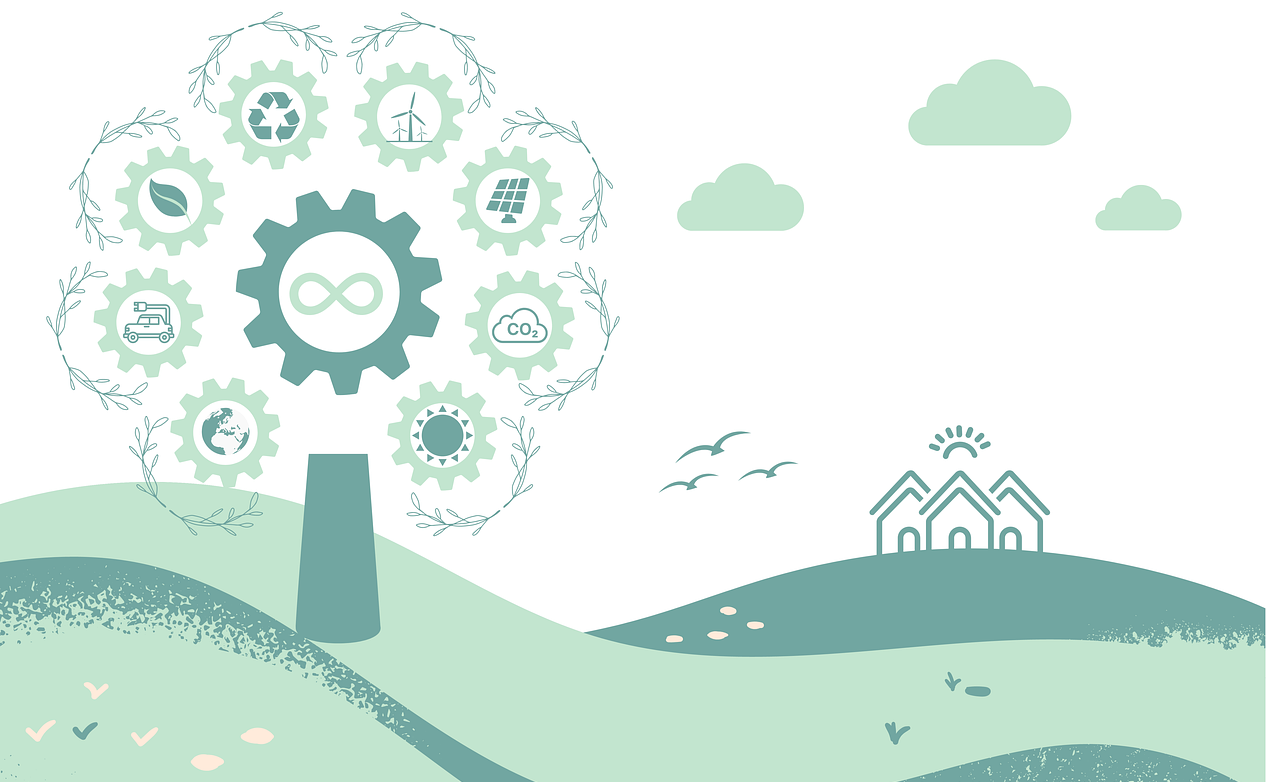CE Incubator kicks off with 33 sustainability startups

The jury of the Circular Economy Incubator has selected 33 projects out of 100+ applications to participate in the latest edition of the program. Divided into four categories, the startups are developing solutions for various industries, including food, textile, sharing economy, and materials. During the next 12 weeks, the startup will benefit from various coaching, mentoring and 1:1 meeting sessions and attend events.
The newest cohort of the Circular Economy Transition (CET) Incubator kicked off their three-month journey at the CE incubator on 17 January 2023. With the support of advisors, experts and a network of impact investors, the entrepreneurs will work on their solutions to develop a minimum viable product (MVP) and validate their business models. The program will run in the cities of Basel, Bern, Geneva, Lausanne, Ticino and Zurich.
The startups in their respective categories are:
Circularity as Sharing and Platform Solutions
GreenUp – leverages the effect of social media and the entertaining aspect of gaming to promote a circular economy and establish eco-friendly habits in people’s life.
Eternitee – A platform that values and makes social contributions count by recognising skills and tokening time dedicated to society.
Circular Lugano Sagl – Maximising the utilisation of common items that end up in cellars so that more people can use the same items without the need of owning a new one.
Vints – VINTS is a Swiss app for second-hand clothing on which you can buy and sell commission free.
Circularity in Textile and Consumer goods
Histoire sans Chute – A refuge for all the textile material that does not pass quality control.
Trashmanship. – a sustainable brand of high-quality furniture and home accessories carefully crafted with the reuse of local construction and demolition of waste.
Well-Rounded – A circular fashion startup that makes clothing essentials for the whole family.
TexUp – TexUp recycles used textiles in the form of designer acoustic panels to reduce noise in interior spaces.
Cirkel Supply Co. – Specialising in apparel rental, offering skiers & snowboarders a new, circular way to reduce their impact by renting premium outerwear.
UniDress – UniDress is an app that allows student communities to sell, repair and rent their wardrobes and buy first-hand clothes from ethical brands.
Turtle – Turtle is the platform that connects locals with the all available second-hand clothing in one place, enabling them to quickly find what they want in their style, hassle-free.
CircleUp – Empowers brands for circularity by providing them with a website of all secondhand offers of their brand from the internet to launch their re-commerce program in a second.
CircleToys – Reducing the environmental impact of toys by giving them a second life.
Kuori – Developing materials that follow the cradle-to-cradle principle, are bio-based and bio-degradable.
rǝstemoebel – Small and somewhat larger furniture with one thing in common: they are built almost exclusively from material scraps that arise during furniture production in carpentry workshops.
Ocean Safe – OceanSafe is a Swiss capital light advanced materials technology licensing company for circular, biodegradable and toxin-free textiles.
StylistEye – A digital wardrobe helping people reduce clothes consumption and save time & money and the planet through getting styled by professionals.
Circularity in Food, Agriculture, and Packaging
KOLI – A reusable shipping packaging solution for the Swiss e-commerce sector.
EasyVrac – EasyVrac is an online marketplace for zero-waste products. Our reusable packaging is collected after use, cleaned and reintroduced in the circuit.
ZipBack – offers recycled and reusable packaging for online sales.
Ampuja – By gathering organic food waste from restaurants, bars and hotels, Ampuja produces and process a spirit using alcoholic fermentation.
Biochar – A climate technology company with a circular carbon removal solution to decarbonise the atmosphere.
miniMenu – enables small private households to make stress-free and sustainable meal decisions by equipping them with a digital assistant.
UriCycle – Transforming the bathroom from a waste emission towards a fertiliser production site using an innovative on-site urine treatment technology.
MyCPAC – Producing a biodegradable packaging material out of the waste from biological edible mushroom production to substitute Styrofoam (EPS) in a closed cycle
Enchar – is a B2B marketplace for biochar, maximising its benefits and enabling rapid growth of this carbon-negative industry.
Glacé Löööv – Producing glacé in Basel from rescued and regional ingredients. This way, food is given a second chance and attention to food waste is drawn enjoyably.
Food Factory – demonstrates in the Food Factory how regional food consumption works, and creates space, environment and structures for a sustainable food system in Basel.
Happie – At Happie – a circular meal kit company – we use reusable packaging to provide our customers with healthy, sustainable and delicious recipes.
Circularity in Built Environment, Mobility, and Logistics
Cycloune – reduces the need to buy new e-bikes and reduces the usage of raw materials such as aluminium and lithium.
SeaStem – aims to sustainably optimise the logistics of seaweed production by developing innovative harvesting and post-harvesting equipment.
Grensol – closing the materials Loop in Automobile Recycling.
Rematter – provides scalable earth-timber floor slabs that help architects, civil engineers, planners and construction companies that want to build with 100% circular, low-carbon and healthy materials.
Source: https://www.startupticker.ch
Published by CVTI